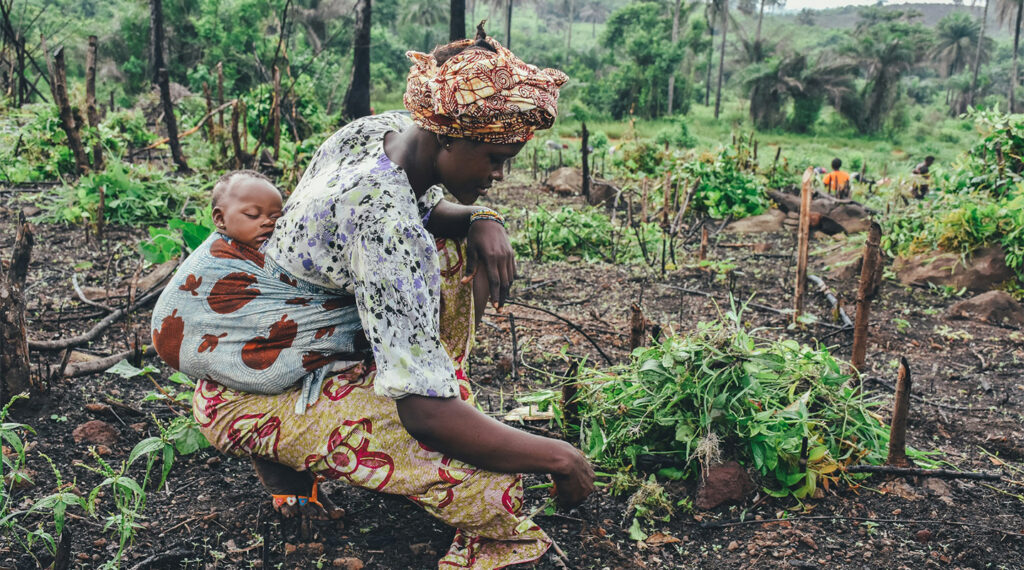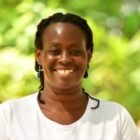Redefining poverty solutions: A systemic shift to build resilience and self-reliance

As the Chef de Partie for ‘Graduating to Resilience’, I’ve had the privilege of witnessing firsthand the transformation of some of the most vulnerable households in Uganda. This programme, which AVSI Foundation leads with support from USAID, is more than just a set of interventions – it’s a journey towards dignity and self-reliance for refugees and impoverished host communities alike.
Our work is rooted in a unique adaptation of the ‘Graduation Approach’, which is more than just delivering aid; it’s about creating sustainable change. Over a period of 30 months, families receive not just financial support, but something far more valuable – consistent guidance and human connection through our dedicated coaching model. Imagine having a coach who not only advises you on how to save money or start a business but helps you regain your confidence and belief in a better future. This bond, built over time, is what I believe truly sets this project apart.
What makes the methodology impactful?
One of the pillars of our approach is personalised ‘household coaching’. Our coaches don’t just deliver technical advice – they become part of the household’s support system. They help families draw up development plans that are realistic and actionable, based on each family’s unique circumstances. It’s this relationship that empowers individuals and households to take control of their future.
Coupled with this is our emphasis on economic strengthening’. Through savings groups, asset transfers, and skill-building workshops, participants learn to create stable income sources. I’ve seen women who once struggled to provide a single meal for their families now running small businesses, contributing to their community’s economy. The pride and empowerment that come with financial independence are palpable.
We’ve also focused heavily on nutrition and food security, through practical initiatives like backyard gardens and nutrition education for parents. These aren’t quick fixes; they’re life skills that families continue to use long after they “graduate” from the programme. These efforts, combined with strategies for managing risk, help households prepare for future challenges – whether it’s a poor harvest or a health crisis.
Lessons learned—what stands out?
There’s no one-size-fits-all approach. One of the most striking lessons we’ve learned is that the timeline for progress differs depending on the population. For Ugandan host communities, we’ve seen families thrive after 18-24 months. However, refugees, who often arrive with nothing, face deeper trauma and more complex barriers, and require up to 30 months to graduate to resilience. But seeing their journey—watching them go from uncertainty to confidence in planning their futures – has been deeply moving.
We’ve also realised the immense value of group coaching. It’s amazing how much strength people draw from shared experiences. Group settings foster peer support, which is vital for building social cohesion. Yet, one-on-one attention remains crucial, ensuring that no family feels overlooked.
But, like any complex programme, we’ve faced challenges. For instance, we’ve struggled to ensure consistent meal diversity and frequency – an indicator we’re determined to improve. We’ve also learned to anticipate and adapt to participant dropout, with about 22% attrition during the project. However, with constant feedback loops, we’re finding new ways to adjust and improve our support.
What inspires me the most?
Perhaps what sticks with me most are the small, daily victories. A mother learning to grow her own vegetables to feed her children. A young man starting a business after receiving his first asset transfer. These may seem like simple achievements, but for families who have experienced years of instability, they represent profound transformation.
Ultimately, Graduating to Resilience is about more than survival. It’s about hope. It’s about the power of human connection, consistent support, and the belief that even in the most fragile situations, human resilience can flourish.
As we move forward, we’re excited to continue learning. We’re learning about mental health support to further boost resilience and digging into what makes a “good coach”, while also tracking the long-term sustainability of these changes. But most of all, we remain committed to walking alongside these families, ensuring that they not only survive but thrive.
As the world looks for sustainable solutions to global poverty, this approach offers a blueprint. By addressing the root causes of food insecurity and vulnerability, this initiative is empowering thousands of refugee and Ugandan households to become self-reliant, while contributing to the broader goal of meeting the United Nations’ Sustainable Development Goals.
Authors

